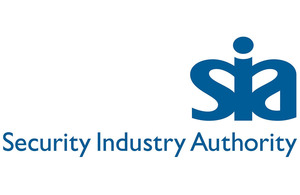Proposed reforms to cost control mechanism and discount rate methodology
The government is looking to make changes to the cost control mechanism and the discount rate methodology, which apply to public service pension schemes. These 2 methodologies support the operation and cost assessment of public service pension schemes which are a key area of expertise in the Government Actuary’s Department.
Cost control mechanism review
The cost control mechanism is designed to ensure a fair balance of risk regarding the cost of providing public service pension schemes between scheme members and the Exchequer.
The HM Treasury consultation on the cost control mechanism follows the Government Actuary’s review carried out by Martin Clarke at the request of HM Treasury and contained a number of recommendations.
This followed concerns the mechanism was not operating in line with its objectives, in particular the intention that it would only be triggered by ‘extraordinary, unpredictable events.’
Proposals
In this new consultation, the government is seeking views on adopting 3 of the potential changes to the mechanism recommended by the Government Actuary:
- removing any allowance for legacy schemes within the mechanism, so it only considers past and future service accrual in the reformed schemes
- widening the ‘corridor’ to reduce the frequency of breaches
- introducing an ‘economic check’ so that a breach would only be implemented if it would still have occurred had long-term economic assumptions been considered
The government believes that introducing these changes will create a more stable mechanism that establishes a fairer balance of risks between scheme members and the Exchequer.
Discount rate methodology review
Contribution rates which are paid by employers into public service pension schemes are calculated using a process known as SCAPE (Superannuation Contributions Adjusted for Past Experience). A key component of SCAPE is the discount rate which is used to express schemes’ future pension payments as a present-day cost.
The SCAPE consultation seeks views on the objectives for the SCAPE rate and the most appropriate methodology for setting this rate going forward. This is in line with the government’s stated intention following the last review in 2011 that the SCAPE methodology would be reviewed every 10 years.
Proposals
The consultation invites views on 2 alternative proposals for setting the discount rate methodology in future:
- expected long-term GDP growth (the current methodology)
- the Social Time Preference Rate (this is the discount rate used in government to conduct investment appraisals of projects that involve spending money in the short term to deliver future welfare benefit)
The consultation also proposes aligning future reviews of the rate with the valuation cycle of the pension schemes.
Any changes to the SCAPE rate will continue to be determined in consultation with the Government Actuary. He advises on the appropriateness of the proposed level of the discount rate based on the prescribed methodology.
Martin Clarke said: “Both the SCAPE discount rate and the cost control mechanism are key methodologies which are used to determine and help control the costs of unfunded public service pension schemes. The consultations will seek views on the most appropriate methodologies for these areas in future.”
Both consultations close on 19 August 2021.


